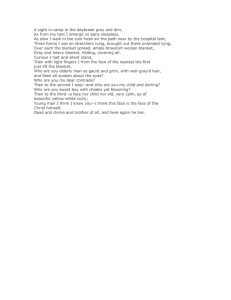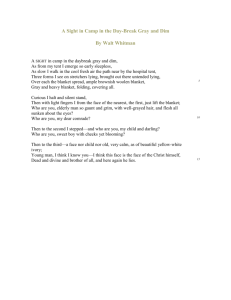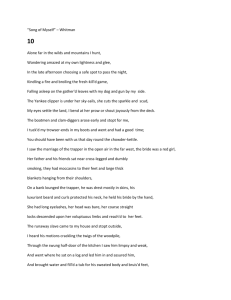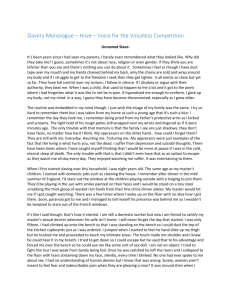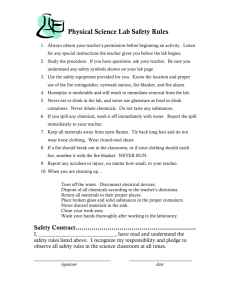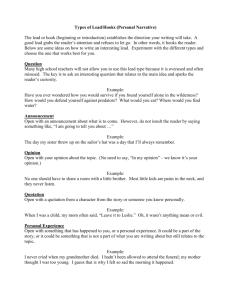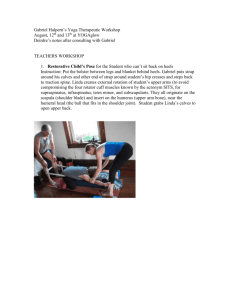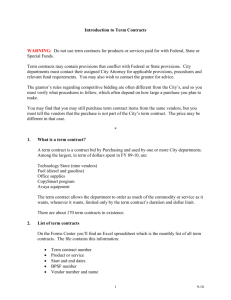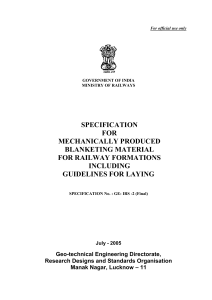Whitman supplement - Effingham County Schools
advertisement
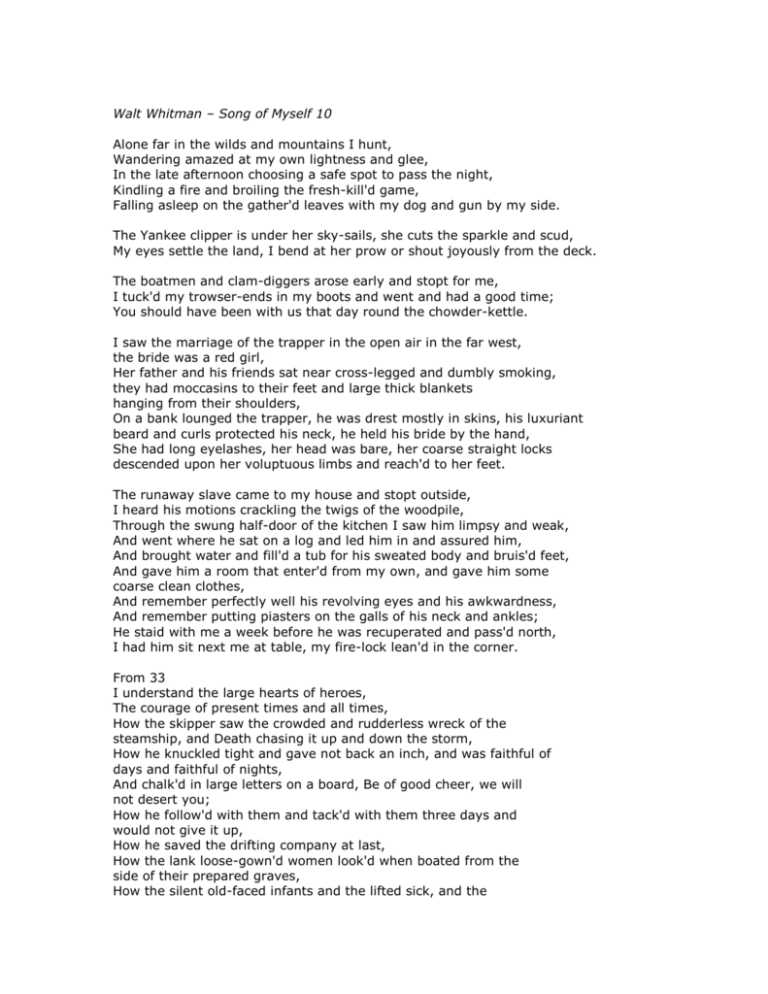
Walt Whitman – Song of Myself 10 Alone far in the wilds and mountains I hunt, Wandering amazed at my own lightness and glee, In the late afternoon choosing a safe spot to pass the night, Kindling a fire and broiling the fresh-kill'd game, Falling asleep on the gather'd leaves with my dog and gun by my side. The Yankee clipper is under her sky-sails, she cuts the sparkle and scud, My eyes settle the land, I bend at her prow or shout joyously from the deck. The boatmen and clam-diggers arose early and stopt for me, I tuck'd my trowser-ends in my boots and went and had a good time; You should have been with us that day round the chowder-kettle. I saw the marriage of the trapper in the open air in the far west, the bride was a red girl, Her father and his friends sat near cross-legged and dumbly smoking, they had moccasins to their feet and large thick blankets hanging from their shoulders, On a bank lounged the trapper, he was drest mostly in skins, his luxuriant beard and curls protected his neck, he held his bride by the hand, She had long eyelashes, her head was bare, her coarse straight locks descended upon her voluptuous limbs and reach'd to her feet. The runaway slave came to my house and stopt outside, I heard his motions crackling the twigs of the woodpile, Through the swung half-door of the kitchen I saw him limpsy and weak, And went where he sat on a log and led him in and assured him, And brought water and fill'd a tub for his sweated body and bruis'd feet, And gave him a room that enter'd from my own, and gave him some coarse clean clothes, And remember perfectly well his revolving eyes and his awkwardness, And remember putting piasters on the galls of his neck and ankles; He staid with me a week before he was recuperated and pass'd north, I had him sit next me at table, my fire-lock lean'd in the corner. From 33 I understand the large hearts of heroes, The courage of present times and all times, How the skipper saw the crowded and rudderless wreck of the steamship, and Death chasing it up and down the storm, How he knuckled tight and gave not back an inch, and was faithful of days and faithful of nights, And chalk'd in large letters on a board, Be of good cheer, we will not desert you; How he follow'd with them and tack'd with them three days and would not give it up, How he saved the drifting company at last, How the lank loose-gown'd women look'd when boated from the side of their prepared graves, How the silent old-faced infants and the lifted sick, and the sharp-lipp'd unshaved men; All this I swallow, it tastes good, I like it well, it becomes mine, I am the man, I suffer'd, I was there. The disdain and calmness of martyrs, The mother of old, condemn'd for a witch, burnt with dry wood, her children gazing on, The hounded slave that flags in the race, leans by the fence, blowing, cover'd with sweat, The twinges that sting like needles his legs and neck, the murderous buckshot and the bullets, All these I feel or am. I am the hounded slave, I wince at the bite of the dogs, Hell and despair are upon me, crack and again crack the marksmen, I clutch the rails of the fence, my gore dribs, thinn'd with the ooze of my skin, I fall on the weeds and stones, The riders spur their unwilling horses, haul close, Taunt my dizzy ears and beat me violently over the head with whip-stocks. Agonies are one of my changes of garments, I do not ask the wounded person how he feels, I myself become the wounded person, My hurts turn livid upon me as I lean on a cane and observe. I am the mash'd fireman with breast-bone broken, Tumbling walls buried me in their debris, Heat and smoke I inspired, I heard the yelling shouts of my comrades, I heard the distant click of their picks and shovels, They have clear'd the beams away, they tenderly lift me forth. I lie in the night air in my red shirt, the pervading hush is for my sake, Painless after all I lie exhausted but not so unhappy, White and beautiful are the faces around me, the heads are bared of their fire-caps, The kneeling crowd fades with the light of the torches. Distant and dead resuscitate, They show as the dial or move as the hands of me, I am the clock myself. I am an old artillerist, I tell of my fort's bombardment, I am there again. Again the long roll of the drummers, Again the attacking cannon, mortars, Again to my listening ears the cannon responsive. I take part, I see and hear the whole, The cries, curses, roar, the plaudits for well-aim'd shots, The ambulanza slowly passing trailing its red drip, Workmen searching after damages, making indispensable repairs, The fall of grenades through the rent roof, the fan-shaped explosion, The whizz of limbs, heads, stone, wood, iron, high in the air. Again gurgles the mouth of my dying general, he furiously waves with his hand, He gasps through the clot Mind not me--mind--the entrenchments. A Sight in Camp in the Daybreak Gray and Dim by Walt Whitman (1819-1892) A sight in camp in the daybreak gray and dim, As from my tent I emerge so early sleepless, As slow I walk in the cool fresh air the path near by the hospital tent, Three forms I see on stretchers lying, brought out there untended lying, Over each the blanket spread, ample brownish woolen blanket, Gray and heavy blanket, folding, covering all. Curious I halt and silent stand, Then with light fingers I from the face of the nearest the first just lift the blanket; Who are you elderly man so gaunt and grim, with well-gray'd hair, and flesh all sunken about the eyes? Who are you my dear comrade? Then to the second I step--and who are you my child and darling? Who are you sweet boy with cheeks yet blooming? Then to the third--a face nor child nor old, very calm, as of beautiful yellow-white ivory; Young man I think I know you--I think this face is the face of the Christ himself, Dead and divine and brother of all, and here again he lies.
